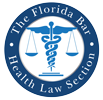Visit the Health Law Section YouTube page to view Jackie’s interview.
Q: What was your career-defining moment?
A: I did international M&A for 10 years after law school before switching to health care 30 years ago. Working in Prague for a few years after the Berlin Wall came down was an amazing experience – I worked on privatizing entire industries and helped Eastern European companies transition from communism to capitalism which was definitely a highlight of my career. Since switching to healthcare I have had the privilege of working both in house (with health plans) and in private practice. They both offer their advantages – in-house you learn the business in-depth but often don’t have the time to do in-depth legal analysis. Private practice is the opposite in my experience. I have been a partner with Epstein Becker Green for 17 years working in the NY office and now in Florida, specializing in managed care contracts between payers and providers and vendors and focusing heavily on reimbursement issues such as value based payment arrangements and price transparency. I represent health care providers, insurers, employers, and technology vendors on their unique managed care issues. I also help ACOs/IPAs and startup technology companies with commercializing their innovations in health care and life sciences.
Q: What do you do outside of work that keeps you busy?
A: I spend my free time with my husband, children and 2 dogs, cooking and travel. Also we just downsized by selling house up north and buying a place in Florida so the last year has been very busy one.
Q: If you have any kind of advice that you could share with more junior attorneys who are just starting out in the practice of law.
A: Be open to opportunities even if you aren’t looking for them. Try to do work you enjoy as the hours can be long. Healthcare can be complicated and is changing rapidly so specializing in one or two areas of interest can make you a sought after expert. Be responsive to your clients – know that at the end of the day your reputation is your main asset so make decisions accordingly.
Q: What do you see as the emerging area in health care law?
A: Well at this particular juncture I would have to say the changes under the new administration look like they will impact health care in a big way – the downsizing of government and the focus on chronic disease, Medicaid, research funding and DEI are several examples. Besides the changes under the new administration, I think AI is going to have critical impact on the entire industry over time. I am seeing it in my work on payment and contracting issues. And of course in the practice of law in general.


















